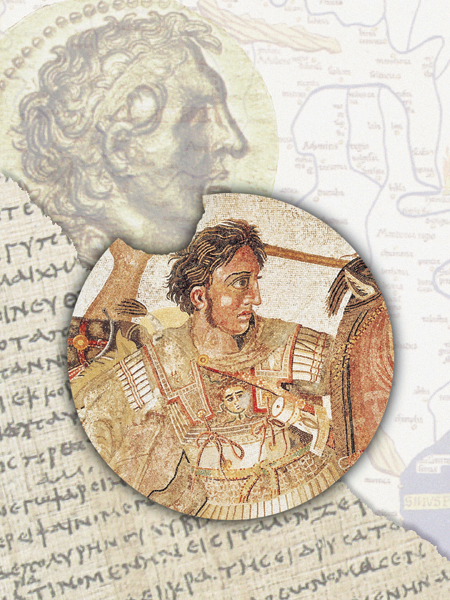Image Details

Scala/Art Resource, NY
Spear upraised, the youthful Alexander the Great (356–323 B.C.E.) is pictured as the victor over the Persian army in 333 B.C.E. at Issus, in Asia Minor. The mosaic above is from the House of the Faun, in Pompeii, which was destroyed by the eruption of Mt. Vesuvius in 79 C.E.; the mosaic is now in the Naples Archaeological Museum.
At its height, Alexander’s empire stretched east to India, north to the Danube River and south to the upper Nile. When Alexander died in 323 B.C.E., this vast realm was divided among his generals, forming three separate empires: the Antigonid dynasty in the north, the Seleucid Empire in the east and the Ptolemaic dynasty in Egypt. Ptolemy I (c. 367–283 B.C.E.), the first Greek king of Egypt, established his capital at Alexandria, which Alexander had founded in about 331 B.C.E., and immediately began to build up the city.
Ptolemy’s grandest project, begun in 306 B.C.E., was the Alexandria Library, a university-like research center that held one million books by the time of Jesus. Home to some of the Greco-Roman world’s most glittering scholars—Euclid (see Father of Geometry), the Jewish philosopher Philo Judeaus (c. 30 B.C.E.–45 C.E.), the Neoplatonist philosopher Hypatia (c. 355–415 C.E.)—this library not only preserved much of the learning of Mesopotamia, Egypt, Greece and Rome, but also added to humanity’s store of knowledge, in the sciences as well as in the humanities. Destroyed during the Arab conquest in 642 C.E., the library continued to live on in Arab culture, which passed many of the ancient texts on to Europe during the Renaissance.
